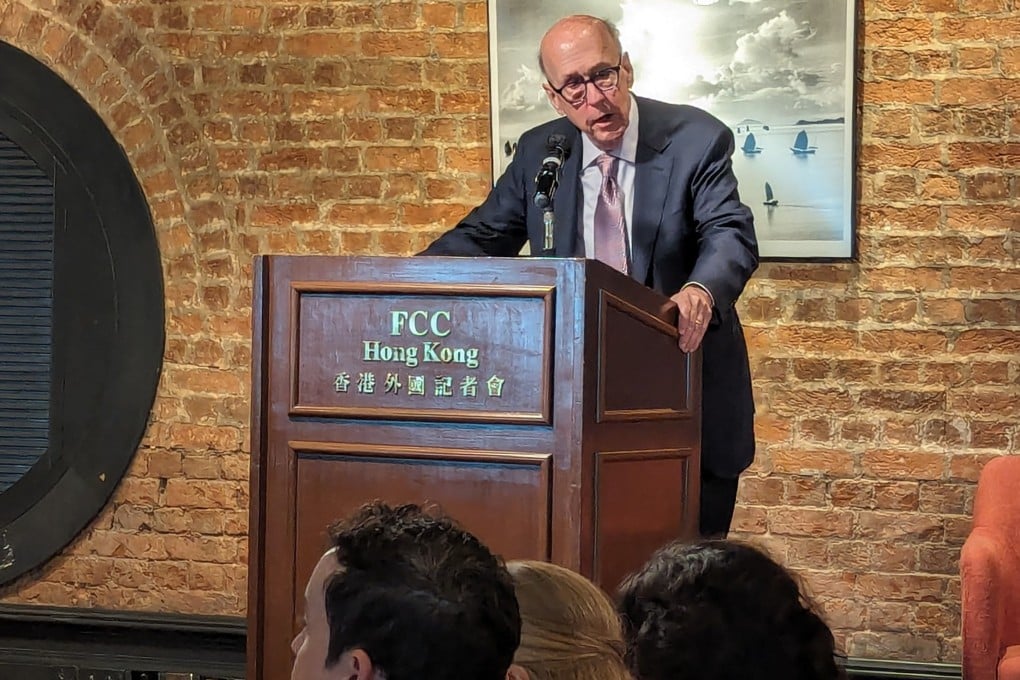Hong Kong government hits back after economist Stephen Roach delivers advice for city
- Ex-investment banker Stephen Roach says city must uphold constructive criticism, while billionaire Mark Mobius says Hong Kong far from over

The Hong Kong government has slammed arguments made by an unnamed “individual”, saying they were completely at odds with real data and facts as it mounted an indirect attack on US economist Stephen Roach for his latest assessment of the city.
Speaking at an event wrapping up his visit this week to the city, Roach, whose views on Hong Kong’s changing fortunes had previously sparked anger among officials, said it was important for the financial hub to continue to allow for constructive criticism.
He also said Hong Kong’s economy would struggle to recover on its own without a rebound of the mainland Chinese economy, which he predicted would underperform for the foreseeable future.
Without naming the individual, the Hong Kong government said in a statement issued late on Wednesday night that the arguments “obviously” ignored Hong Kong’s existing advantages and momentum of its economic development, citing the city’s 3.3 per cent growth in 2023 against a contraction a year ago.
“The market value of Hong Kong’s stock market exceeds HK$33 trillion [US$4.2 trillion], 10 times that during the handover in 1997. The Stock Connect schemes with Shanghai and Shenzhen have also brought a total of more than 1.8 trillion yuan [US$248 billion] and HK$3.1 trillion in northbound and southbound capital flows,” the government said.
“These figures fully demonstrate that Hong Kong, as an international financial centre, has played its role to the fullest in facilitating the integration of domestic and foreign capital.”